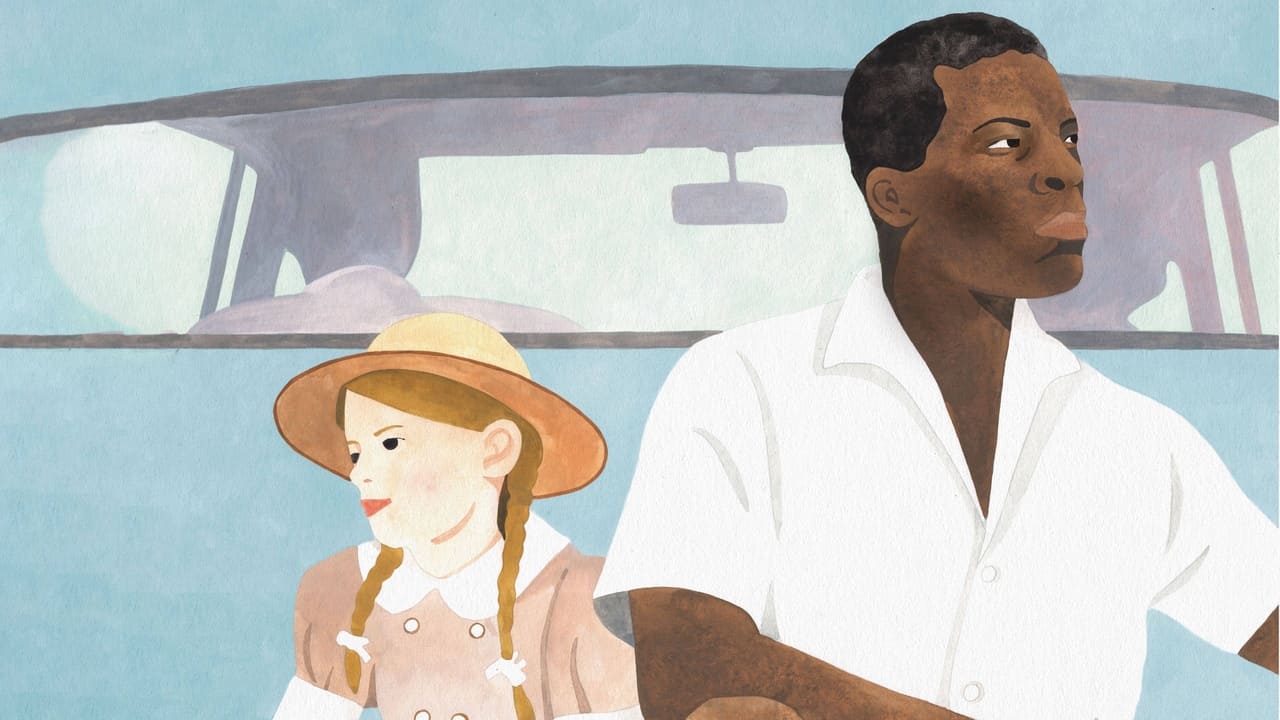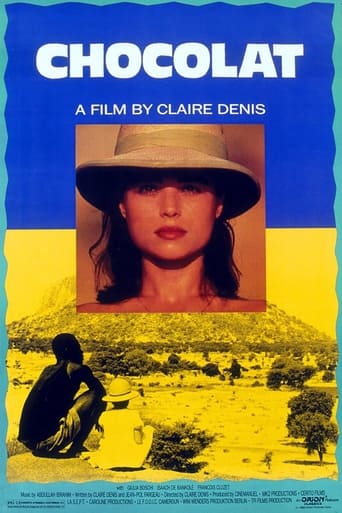

Waste of time
... View MoreGood concept, poorly executed.
... View MoreThe film was still a fun one that will make you laugh and have you leaving the theater feeling like you just stole something valuable and got away with it.
... View MoreThis movie tries so hard to be funny, yet it falls flat every time. Just another example of recycled ideas repackaged with women in an attempt to appeal to a certain audience.
... View MoreDespite needing something more for me in its wrap-up, Claire Denis' Chocolat is in all ways a really good look into Cameroon and France's colonial history. Unlike the case of some films made in the US, it doesn't hammer the audience with a message about white people's ugliness, instead it just carefully shows them, and sort of leaves the audience the responsibility to observe and be horrified. It's amazing how a narrative like this with a white lead is so carefully handled that it doesn't make excuses for that privilege, and doesn't paint her as an exception or, a favorite Hollywood trope, the white savior. Isaach De Bankolé is also key here. When his character cracks it's not obvious why he does, but it's in the little expressions and reactions to the things he hears and witnesses that should explain it.
... View MoreThis is an amazing film to watch or show young people. Aside from a very brief nude scene, it gives an interesting glimpse into colonial rule in Africa that you'll rarely find in other films. It does bear a superficial similarity to OUT OF Africa, but without all the romantic fluff. The White French people in Cameroon are fascinating because they don't even seem to regard the natives as people. The Whites are all the bosses and they expect Black servitude without question. However, unlike real servants, you only once hear any of the Whites say 'thank you' and no other regard is given these people. Again and again, it's like they are pets or slaves, as the feelings of the people are never even considered. The central illustration of this thoughtlessness is the relationship between the mother, Aimée and her servant, Protée. Although at times they spend a lot of time together and it is only normal that they might begin to have sexual feelings towards each other, the White woman never considers Protée or the existence of his feelings. A good example of this thoughtlessness is when she has Protée lace up her dress and it's obvious that he is very sexually frustrated by this. Apart from this relationship, while almost all the Whites are completely oblivious to the fact that the Africans are people, a few go so far as to verbally abuse and treat them like garbage.Also interesting is the relationship between Protée and the little girl (who is the one who is grown at the beginning and end of the film). While they are very close, at times he's more like a plaything or pet and the girl never plays with native children.There is one bizarre White character who seems, at times, to regard the Blacks better but unfortunately his character is very inconsistent and confusing. One moment, he's doing hard work along side the Blacks or eating with them (something the other Whites would never have done) and the next he's trying to beat up Protée! I could only guess as to what motivated him--perhaps he was just a jerk, or was crazy or perhaps was a Communist agitator trying to stir up the Blacks against the Whites (who knows!). In fact, other than a few good scenes, this character seems pretty much wasted.While I really enjoyed the insight this movie gave, I wish it had instead been more than just a few snippets of this world through the perspective of a child during one small period of her life. The context and what happened to rid the country of colonialism is never addressed and the film left me wanting more. The film appeared to begin in the early 1980s (since she's wearing a Walkman-style headset) and when the film went back in time, it seems that it was set about 1960 (more or less), but there was never any mention of the 1950s anti-colonialism violence or independence for the nation in the early 1960s. I am guessing that some of this confusion might be that the makers of the film screwed up and SHOULD have made the beginning of the film earlier (such as the 1970s) and had the lady think back to her life there in the early 1950s--before the country experienced political change.Apart from the missing context and a confusion over time periods, using the prologue and epilogue that showed her as an adult traveling the country was a good idea. And I also appreciated the ending, as it was a pleasant surprise when you find out more about the nice man who offers her a ride. But overall, it just feels like something is missing--there just isn't any sort of resolution or message other than showing that colonialism is thoughtless and cruel.
... View MoreThis movie shows life in northern Cameroon from the perspective of a young French girl, France Dalens, whose father is an official for the colonial (French) government, and whose family is one of the few white families around. It gives a sense of what life was like both for the colonists and for the natives with whom they associated. It's a sense consistent with another movie I've seen about Africa in a similar time period (Nirgendwo in Afrika (2001)), but I have no way of knowing how realistic or typical it is. It's not just an impression -- things do happen in the movie -- but the plot is understated. The viewer is left to draw his own conclusions rather than having the filmmakers' forced upon him, although the framing of the story as a flashback from the woman's visit to south-western Cameroon as an adult provides some perspective.
... View MoreClaire Denis' debut is both a brave and self-assured one. In this depiction of life towards the end of French colonialist Cameroon, she explores the relationships between men and women, black and white.With the black servant 'Protée' as the film's primary object of desire and oppression, the film enters taboo territory from the beginning. Denis builds a picture of life through a series of character relationships that keep the informed viewer fixed to the screen. The mood of the film is captured perfectly by the camera-work and (lack of) lighting.A great discourse.
... View More